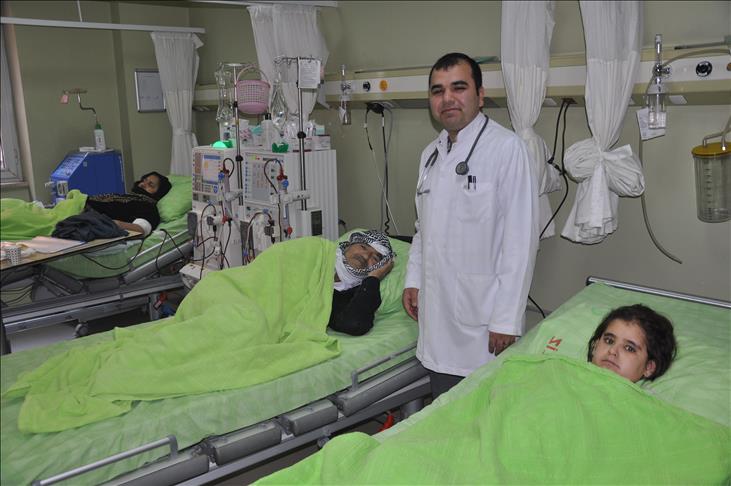
By Nilay Kar
ISTANBUL
“I was like the living dead during that time,” says 46-year-old Metin Savucu, formerly one of Turkey’s estimated 28,000 people in need of an organ transplant.
Savucu – a home decorator in the southern city of Antalya – had to wait six years for a new liver, a draining and debilitating experience: "I was very exhausted. Life was very hard for me during that period," he says.
A cycle of treatment and waiting was broken when his doctor revealed that a recently deceased donor was a good match, meaning Savucu became one of the 24,111 people to undergo transplant surgery in Turkey between 2002 and 2012.
However, last year 1,800 died because of organ failure, according to the country’s health ministry and, although Turkey’s first organ transplant was carried out almost 40 years ago, senior medical experts are warning that the number of people willing to donate organs needs to increase.
"Organ donation is a matter of culture and organization. It is very important to raise public awareness,” says Mumin Uzunalan, Organ Transplant Coordinator at Memorial Hospital in Istanbul.
The first successful organ transplant in Turkey was carried out in 1975 from a mother to her son who was suffering from a kidney failure. “Turkey has made progress in many fields within 40 years, but organ donation has nearly stood still," Uzunalan says.
“This is because health professionals could not explain the importance of donation sufficiently and could not hold enough activities to draw people’s attention to organ donation," says Huseyin Yildirimoglu, Organ and Tissue Transplant Coordinator at Chest Diseases and Thoracic Surgery Research and Training Hospital in Istanbul.
"Our aim is to completely increase the numbers of deceased donors, reducing numbers of living donors by holding various activities to draw people’s attention.”
Turkey practices the ‘opt-in’ system of organ donation where people actively choose to donate but when a person dies without a donor card their family can override the wishes of the deceased.
In the ‘opt-out’ system practiced by Belgium, Austria, Spain and France individuals need to state that they do not want to donate their organs otherwise they are automatically accepted as a donor after death, often leading to higher rates of donations and transplants.
As it is a sensitive subject, people recoil from discussing death. Many are unfamiliar with the donation process and are not completely aware of its benefits.
These benefits were obvious to Metin Savucu: “I was very happy when I heard the news,” he says. “Now, I am good. I don’t have big problems. I can work as I did in the past.”
Those who are lucky enough to receive a matching transplant often go one to become donors themselves. Twenty-seven-year-old Emrah Demirci from Istanbul, who was suffering from lung problems, was lucky in finding a suitable organ within three months.
After the transplant Demirci and his family registered to become donors but he says it is very hard to convince people who haven’t lived with organ failure to donate: "Some people do not understand the importance of the donation as they have not experienced such a thing."
Although transplant patients play an important role in raising people's awareness, health officials say the numbers donating are low and public’s awareness is “limited”.
Misinformation about the process and religious objections are other important factors in people being unwilling to donate their organs, say officials.
Last year, Mehmet Gormez, head of Turkey’s Religious Affairs body proclaimed that there was no obstacle in Islam to Muslims donating their organs.
“Organ donation is the greatest alms from a life to another life,” he said during last November's Organ Donation Week.
For many the long wait goes on. Seventeen-year-old Syrian national Omer al-Haqqa has been on the waiting list at Istanbul’s Cerrahpasa Hospital for a new kidney for three months, not knowing when he will find a suitable match.
"My uncle came from Syria to donate his kidney but it did not match. We are now waiting for my other uncles to come here but we don't know again whether their organs will match or not," Omar’s sister Beyan says.
Anadolu Agency website contains only a portion of the news stories offered to subscribers in the AA News Broadcasting System (HAS), and in summarized form. Please contact us for subscription options.

